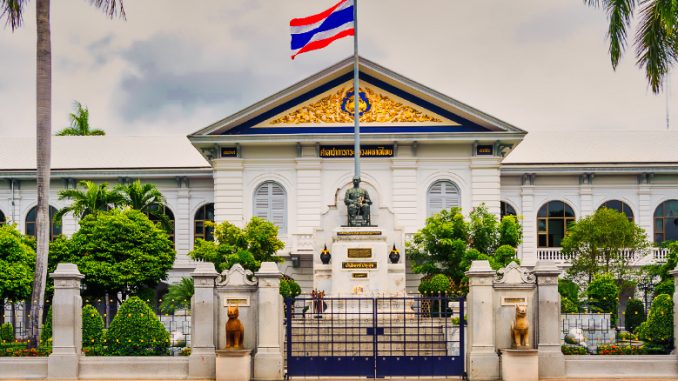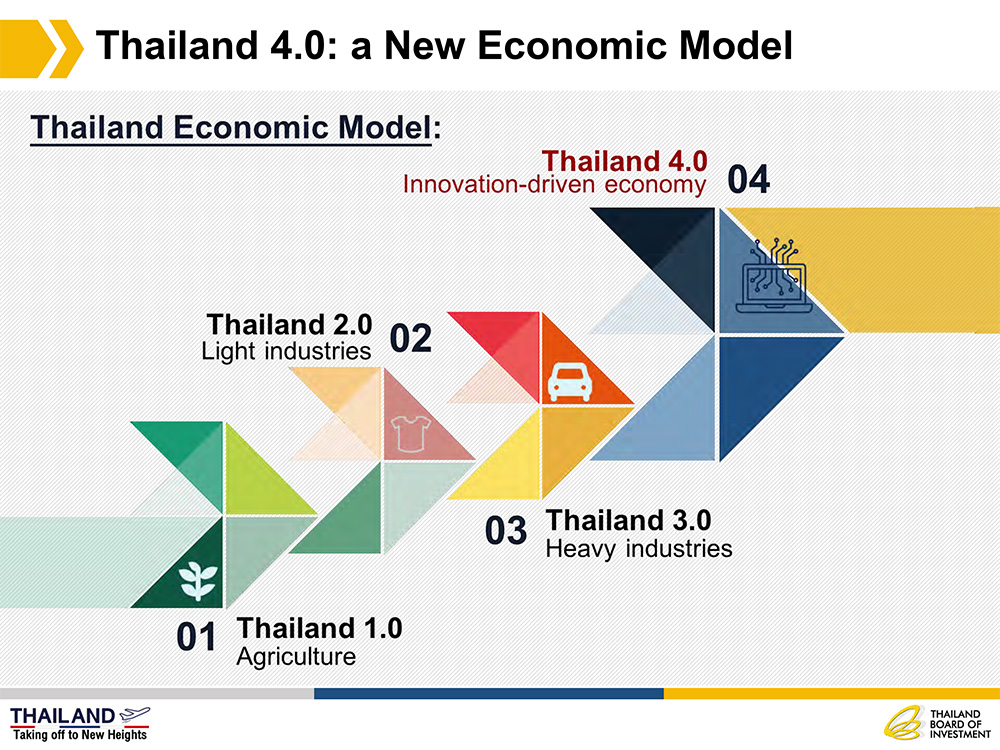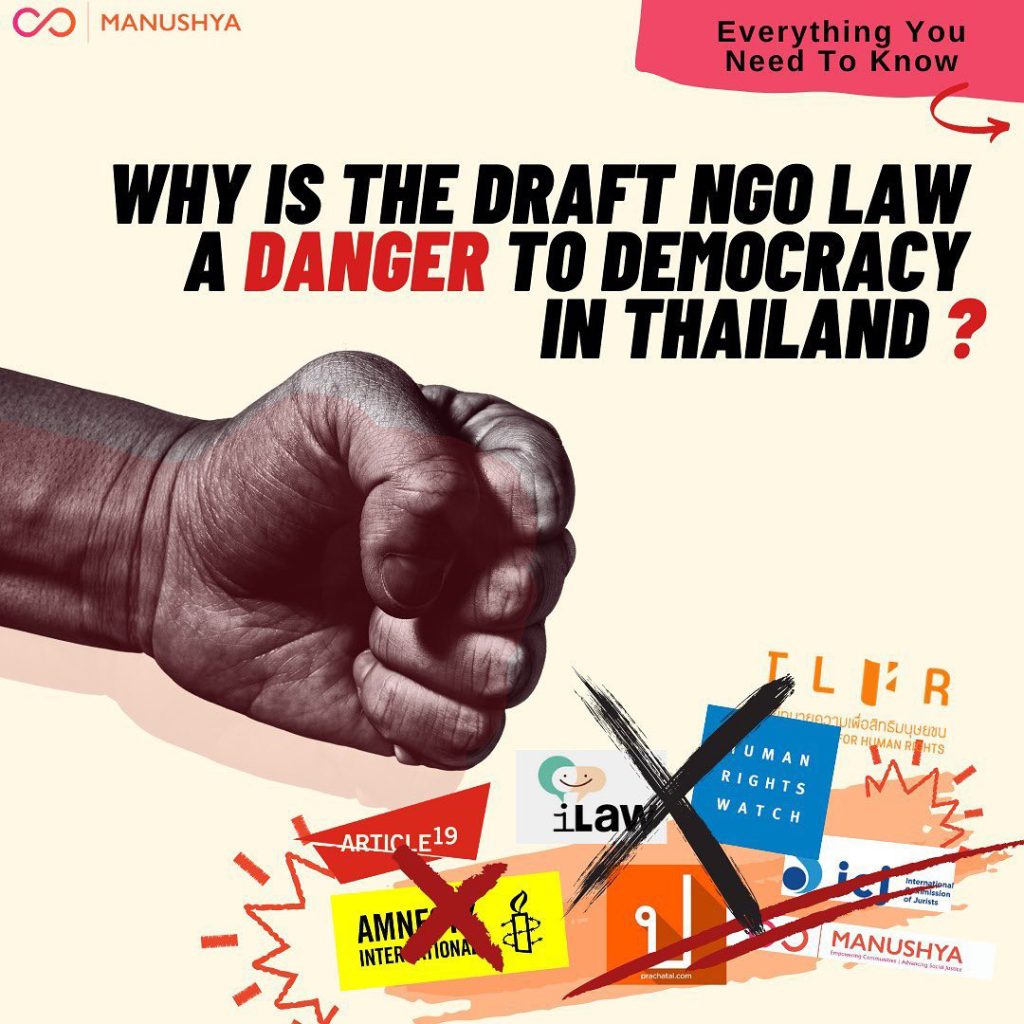
A scholar portrayed Thailand’s growth as being contentious, with the main issue driving the discussion being who Thailand’s legitimate development actors are (Cogan, 2021) Amnesty International has made headlines and has been accused of being a tool of foreign meddling, despite the fact that there is little solid evidence to support these allegations. This has reignited interest in the topic. Misinformation of various kinds regarding Amnesty International has had a significant negative impact on Thailand’s development discourse. When the Defense Council, presided over by interim Deputy Prime Minister and Defense Minister Prawit Wongsuwan, declared in 2019 that it would intensify legal actions “against those responsible for the dissemination of malicious fake news and information” that could “have an impact on national security or harm the reputation of a particular organization,” (Sombatpoonsiri, 2019).
The development arena in Thailand has been consistently described as a heavily contested one more so after the 2014 military coup which has brought forth various concerns about the development happening in Thailand. With this change in leadership scholars such as Cogan (2021) and Chiengkul (2019) have noted a profound difference in the development patterns that drive change in Thailand. As it stands one of the most important questions one can ask when it comes to development is; who is doing the development and who is meant for? This has been part of a more extensive ongoing debate surrounding the development of Thailand within the scope of “Thailand 4.0” that the Royal Thai government is intending to achieve. However, the practical question remains regarding how exactly this will be done. The problem lies herein that the current debate rages, on who exactly has the ‘right’ to be a development actor and what kind of power they may hold to enact development. Within this work, I attempt to illuminate the issue of contested legitimacy of development actors in Thailand and the various obstacles that may pose a threat to the effective execution of development.
Thailand 4.0
In order to better understand the path of development that Thailand is undertaking, it is best done through the concept of Thailand 4.0, a vision spearheaded by the Royal Thai Government which lies at the core of the development philosophy that the Royal Thai Government has adopted. As Jones and Pimdee (2017) have remarked, “Thailand 4.0 is rather difficult to be fully defined as a concept as the Royal Thai Government is still actively shaping the definitions of the terms. However, it is being used as a seemingly all-encompassing umbrella term to refer to the development in which technology and innovation are proposed tools for boosting the quality of life. The vagueness has been a sticking point for a while as defining these terms have become increasingly more contested by non-government stakeholder as the power dynamics of development actors have changed with a notable shrinkage in civil space (Desatova, 2018).

Perhaps the most notable changes that have happened in the development space in Thailand is the restrictions and regulations placed on non-government stakeholders where the majority of the literature seems to agree that this has had a rather negative impact on the overall development dynamics in Thailand. There has been a lot of animosity between development actors in Thailand which is evidenced by the various news reports and documented conflicts where government actors are directly at odds with non-government actors. A recent conflict that illustrates this point is the case of Amnesty International, among others, that have been accused of being an agent of foreign influence that would be interfering with Thailand’s domestic affairs. No concrete evidence has been found so far in support of claims of foreign interference, but it has soured relationships between non-government actors and government actors according to a statement released by several NGOs (ICJ, 2022).
This fear of government actors has brought the discussion of who is doing the development to the forefront. There has been a steady increase in the literature as to what this means for development actors and their agency when it comes to their ability to participate in development. Chiengkul (2019) and Hsu (2021) have mentioned that NGO laws are already very restrictive and the proposed NGO law would become a death knell in practical terms as it would severely hamper their ability to participate in development. But more importantly what has not been sufficiently mentioned is that current campaigns that smear non-government actors and accuse NGOs of being agents of foreign inference are malicious and erode the credibility of the development actors in Thailand, further antagonizing those who work in the development space in Thailand.
This has been the point of Cogan (2021) who has argued that this manner of antagonizing and souring relationships has been rather beneficial for government actors as they have been moved towards a more restrictive approach when it comes to non-government actors by introducing various hurdles both legal as well as economical to severely restrict the movement of NGOs. This has become a main point of contention where there has not been any progress towards resolving animosity as well as improving the issues that all actors are working on (Chiengkul, 2019).

Horizontal power struggle
To frame this ongoing dialogue on who a legitimate developer is, literature has often brought this in comparison with the development governance in China taking China’s Communist Party (CCP) as an example. This has been a consistent theme throughout the literature where scholars such as Cogan (2021) have contextualized the issue of Thailand by drawing parallels with the governance framework in China. Part of this ongoing dialogue speaks to a core issue which is the idea of sovereignty and the conflict between the ‘global’ and ‘local’ norms or the ‘universality’ of norms. Cogan’s (2021) argument is in full agreement with other scholars who argue that the proposed NGO legislation seeks to preserve the state’s ability to exclusively shape internal norms. This is in stark contrast as NGOs on the other hand seek to promote what is viewed as ‘global’ norms. An emerging theme from academic and other scholarly work seems to voice an overall consensus that the NGO law is oppressive in nature, and while this position does hold some merit, the under-discussed problem is that there may be a genuine concern from a government perspective as why the Royal Thai government would seek to limit the spread of ‘global’ norms if they conflict with local ones. To an extent, it revives the Huntington-ian question on the clash of norms and the creation of a “geoculture.”
Huntington’s “clash of civilizations” theory has begun to take hold as a better explanation of why geopolitical actions happened the way they did. This has been argued to be the case in China as to how development governance is employed by the CCP. The case of China, (Winter, 2021) has argued that the development governance is centralized in nature with the main development actors being the CCP itself. Winter has further elaborated that non-government development actors are not understood to be the same as their Western counterparts. The introduction of NGOs in the Chinese development space has only been recent as Jie (2006) remarked that the CCP has slowly changed its viewpoint of NGOs being a potential threat to the state’s ability to exclusively shape internal norms and has moved to take a more approachable position in which they open the development space for alternative forms of development.
In practical terms, the case of Thailand seems to be nearing closer to the Chinese practical reality as more restrictive policies are to be adopted that favor state development actors over potential alternatives. The pathways of development in Thailand have historically have been difficult as there have been recorded cases of friction between various development actors which has added an intricate layer of complexity to deep-rooted problems. Pangsapa (2015) has argued this within her work of investigating civil societies as well as NGO activities and has argued that there is a possibility that union and NGO activity have the potential to improve the situation of migrants in Thailand. She further extends this by raising the question of whether advocacy groups should be acting in lieu of the state rather than alongside the state, especially when it appears that they are fulfilling their civic duty as enforcers and monitors of migrant workers’ problems.
Pangsapa’s line of questioning echoes a larger point made that the growing influence of civil societies and NGOs has been seen as a challenge to the state. It speaks to the social reality of vulnerable groups of people who have very little support. It is in this space where potential NGOs and civil society step in to fill the gaps of state development. It begs the question that if non-state actors are discouraged from participating in development, what alternative can the state provide? This is why the current framework that NGOs have to adhere to, is that it further fuels an atmosphere of distrust which only breeds further development issues on top of the existing issues. Prateapusanond (2017) elaborated on this aspect when she claimed:
“By law, the establishment and oversight of Thai NGOs are governed by the Civil and Commercial Code of 1925 (last amended in 1992). In addition, the National Cultural Act of 1942 established the National Cultural Commission, a governing body responsible for both the establishment and oversight of foundations and associations—two main legal categories of most NGOs in Thailand. While, under the Civil and Commercial Code, the National Police Office Bureau retains responsibility for the establishment and oversight of associations, and the Ministry of the Interior holds responsibility for foundations. All in all, it should be noted here that this “dual system of responsibility” —one that has more than one agency responsible for the same issue—is similar to the system in Taiwan and China (Karla, 2002).”
Her argument illustrates the struggle for control between the State and non-state development actors. It adds a complex layer of administration that has been a sticking point of non-state development actors and has been cited as a major obstacle that prevents non-state development actors from participating in the Thai development landscape. On top of the aforementioned issues surrounding NGOs in Thailand, there has been a growing debate regarding the legitimacy of non-state development actors versus state actors. The issue of the power struggle between development actors in Thailand has been one that is closely followed by academia but the deeper growing point of discussion is how legitimacy has become more contentious. As Cogan (2021) remarked, there have been numerous document instances where legitimacy has been put into question either by misinformation or by the legal framework in Thailand that does not support the agenda of NGOs in Thailand which may contradict the agenda of Thailand. Prateapusanond (2017) has suggested that there remain unresolved existing conflicts in fundamental concepts, practical approaches, and working strategies between the government and the NGO sector.
Going forward
Looking at the current development trends in Thailand it is clear that there remains much discord between development actors on many fronts, ranging from legal disputes regarding misinformation about development actors to disputes concerning the authority to partake in development. In addition, the proposed NGO draft law seems to be causing more problems than it aims to solve by directly questioning the legitimacy of non-state development actors. This is compounded by existing misinformation surrounding the non-state development actors. While dialogue surrounding these various issues is still heavily debated and discussed, it does, unfortunately, has practical consequences for those that development actors were meant to help. Vulnerable groups of people who often fall through the cracks of state policy, where non-state actors could step in to help those groups are now being regarded as an obstacle to the development plans of the state.
Praween Van Rysselberge
Graduate Research in International Development (GRID) Program, Faculty of Political Science, Chulalongkorn University, Thailand
Chiengkul, P. (2019). Uneven development, inequality and concentration of power: A critique of Thailand 4.0. Third World Quarterly, 40(9), 1689–1707. https://doi.org/10.1080/01436597.2019.1612739
Cogan, M. S. (2021). Thailand’s proposed NGO law will devastate civil society. Southeast Asia Globe. https://southeastasiaglobe.com/thailands-ngo-law/
Desatova, P. (2018). Thailand 4.0 And the internal focus of nation branding. Asian Studies Review, 42(4), 682–700. https://doi.org/10.1080/10357823.2018.1512555
Hsu, C. C. (2021, May 4). Thailand’s proposed NGO law will devastate civil society. Southeast Asia Globe. https://southeastasiaglobe.com/thailands-ngo-law/
International Commission of Jurists (2022, March 24).Thailand: NGO law must be revised or withdrawn. https://www.icj.org/thailand-ngo-law-must-be-revised-or-withdrawn/
Jie, C. (2006). The NGO Community in China. China Perspectives, 2006(6), 29–40. https://doi.org/10.4000/chinaperspectives.3083
Jones, C., & Pimdee, P. (2017, January 1). Innovative ideas: Thailand 4.0 and the fourth industrial revolution. Asian International Journal of Social Sciences. https://www.researchgate.net/publication/321337414_Innovative_ideas_Thailand_40_and_the_fourth_industrial_revolution
Pangsapa, P. (2015, May 27). When Battlefields become Marketplaces: Migrant Workers and the Role of Civil Society and NGO Activism in Thailand. International Migration, 53(3), 124–149. https://doi.org/10.1111/j.1468-2435.2009.00559.x
Prateapusanond, A. (2017). Management of NGO/INGO in Thailand: Development, Practices, Concerns and Recommendation. National Defence Studies Institute Journal, 8(3), 24–29.
Sombatpoonsiri, J. (2021, January 1). From repression to revolt: Thailand’s 2020 protests and the regional implications. https://www.ssoar.info/ssoar/handle/document/71730
Winter, T. (2021). Geocultural diplomacy. International Journal of Cultural Policy, 28(4), 385–399. https://doi.org/10.1080/10286632.2021.1967943
